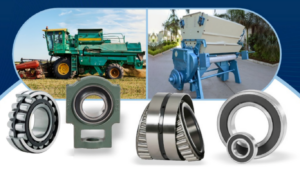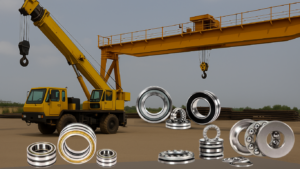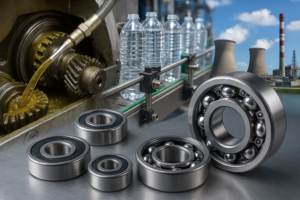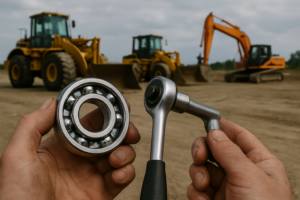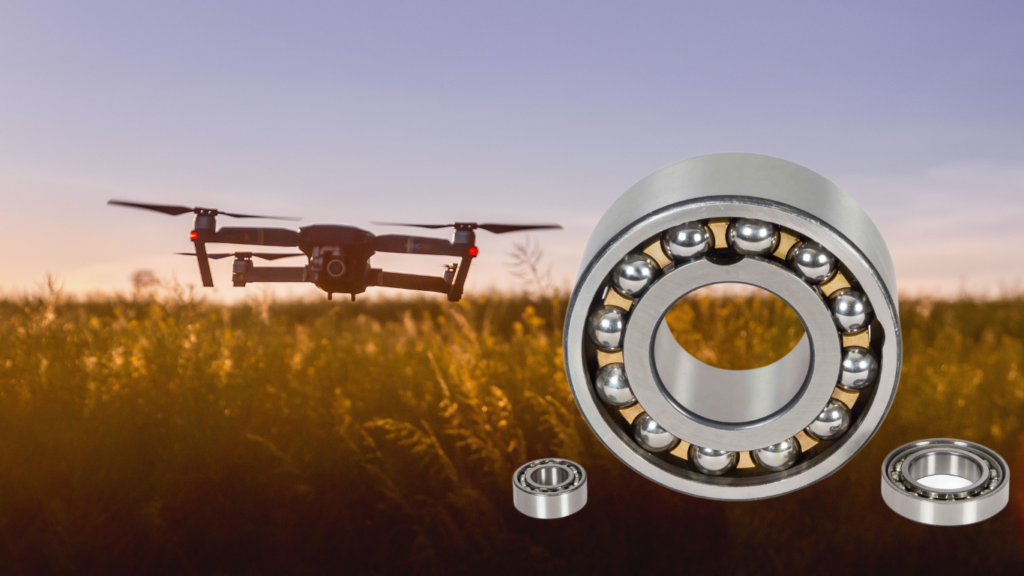Everything To Know About Precision Bearings
In the world of precision engineering, where accuracy, smoothness, and reliability are paramount, precision bearings play a pivotal role. These highly specialized components are designed to meet stringent tolerances and exacting performance requirements, making them indispensable in precision machinery and instruments. From aerospace and medical devices to semiconductor manufacturing and robotics, precision bearings form the backbone of various industries. ZNL in this blog will delve into the importance of precision bearings, their unique features, and their applications in precision machinery and instruments.
What are Precision Bearings?
Precision bearings are a class of rolling bearings that are engineered to provide exceptional accuracy and smooth motion. Unlike standard bearings, precision bearings are manufactured to strict standards and specific performance criteria. They are designed to minimize friction, reduce rotational noise, and maintain dimensional stability even under demanding conditions. Precision bearings are commonly used in high-precision machinery and instruments, where even the smallest deviation can lead to significant consequences.
The Role of Precision Bearings in Precision Machinery:
In precision machinery, every component must work seamlessly to achieve unparalleled accuracy and efficiency. Precision bearings act as the linchpin in this intricate setup, enabling smooth and precise movement. Whether it’s in CNC machines, optical devices, or high-precision measuring instruments, precision bearings facilitate precise positioning and motion control, ensuring consistent and reliable performance.
Unique Features of Precision Bearings:
Precision bearings stand out from standard bearings due to their exceptional features tailored for precision applications:
a. Tolerance and Fit: Precision bearings are manufactured with tight tolerance levels, ensuring minimal clearance and precise fitment within the machinery.
b. Material Selection: High-quality materials, such as stainless steel or ceramic, are chosen for precision bearings to enhance durability, resist corrosion, and handle extreme conditions.
c. Lubrication: Precision bearings are often pre-lubricated with specialized greases or oils, ensuring smooth operation and extended service life.
d. Cage Design: The cage design in precision bearings is carefully optimized to reduce friction and maintain uniform ball or roller spacing.
e. Sealing and Shielding: Advanced sealing and shielding mechanisms protect the precision bearings from contaminants, further enhancing their reliability.
Applications In Different Sectors
Precision Bearings In Aerospace and Defense:
The aerospace and defense industries demand the utmost precision and reliability in their equipment. Precision bearings find applications in critical components like aircraft engines, radar systems, and gyroscopes. Their ability to handle high-speed rotations, extreme temperatures, and heavy loads makes them essential for ensuring safe and efficient operations in these sectors.
Precision Bearings In Medical Devices and Surgical Instruments:
In medical devices and surgical instruments, precision is non-negotiable. Precision bearings are used in medical imaging equipment, dental drills, robotic surgical systems, and prosthetic devices. The smooth and accurate motion provided by these bearings is crucial for precise diagnoses, procedures, and patient outcomes.
Precision Bearings In Semiconductor Manufacturing:
The semiconductor industry relies heavily on precision bearings for wafer handling, aligning, and precision testing. The precision in this sector is measured in microns, and even the tiniest irregularity can lead to defects in semiconductor chips. Precision bearings enable the intricate movement required in the manufacturing process, ensuring consistent performance and yielding high-quality chips.
Precision Bearings In Robotics and Automation:
Significance of robotics in industrial revolution is huge. In the field of robotics and automation, precision bearings enable smooth and precise movements in robot joints and actuators. These bearings contribute to the efficiency and repeatability of robotic tasks, making them indispensable in industrial automation, assembly lines, and research applications.
Precision Bearings In Construction Industry:
In the construction industry, where heavy machinery and equipment are at the heart of every project, precision bearings play a crucial role in ensuring smooth and efficient operations. Here are some key roles of precision bearings in the construction sector:
a. Cranes and Lifting Equipment: Tower cranes, mobile cranes, and lifting equipment rely on precision bearings to handle heavy loads and enable smooth rotation. These bearings provide stability and precise movement, essential for safe and accurate lifting operations.
b. Earthmoving Equipment: Bulldozers, excavators, and loaders utilize precision bearings in their tracks and rotating components. These bearings allow for precise control during excavation and material handling, ensuring optimal performance and reducing wear on parts.
c. Concrete Mixers and Pumps: Precision bearings are used in concrete mixers and pumps to handle the high loads and vibrations associated with concrete production and placement. These bearings contribute to the reliability and longevity of the equipment.
d. Tunnel Boring Machines: Tunnel boring machines (TBMs) require precision bearings to ensure smooth and precise rotation of the cutter head. The accuracy of these bearings is essential for maintaining the correct tunnel diameter and alignment during excavation.
e. Construction Vehicles: Various construction vehicles, such as graders and compactors, utilize precision bearings in their wheels and axles. These bearings provide stability and enable smooth movement, optimizing the performance of the vehicles.
Precision Bearings In Agricultural Machinery:
In the agricultural sector, where productivity and efficiency are paramount, precision bearings along with other bearings in agricultural sector play a vital role in enhancing the performance of agricultural machinery. Here are some roles of precision bearings in agricultural equipment:
a. Tractors and Harvesters: Precision bearings are utilized in the wheels, axles, and drive systems of tractors and harvesters. These bearings allow for smooth and precise movement, reducing energy consumption and improving fuel efficiency.
b. Irrigation Systems: Agricultural irrigation systems, such as center pivots and linear move systems, require precision bearings in their rotating components. These bearings enable precise water distribution, reducing water wastage and ensuring uniform irrigation.
c. Seed Drills and Planters: Precision bearings are used in seed drills and planters to ensure accurate seed placement and depth control. These bearings contribute to uniform plant spacing and optimal germination rates.
d. Grain Handling Equipment: Grain augers, conveyors, and elevators utilize precision bearings to handle the movement of grains efficiently. These bearings minimize friction and wear, reducing downtime and maintenance costs.
e. Sprayers: Precision bearings are essential in agricultural sprayers to facilitate precise nozzle control and spray pattern. These bearings enable accurate application of fertilizers and pesticides, optimizing crop yield and reducing chemical waste.
Conclusion:
Precision bearings stand as the unsung heroes in the realm of precision machinery and instruments. Their ability to provide exceptional accuracy, reliability, and smooth motion makes them an indispensable component in various industries. ZNL Bearings is a significant manufacturer and exporter of precision bearings. From aerospace and medical devices to semiconductor manufacturing and robotics, precision bearings play a critical role in enhancing performance and ensuring consistent results. As industries continue to push the boundaries of precision engineering, precision bearings will remain at the forefront, enabling innovation and excellence in modern technology.




